
Label the Microscope Diagram Download Scientific Diagram
Drag and drop the text labels onto the microscope diagram.
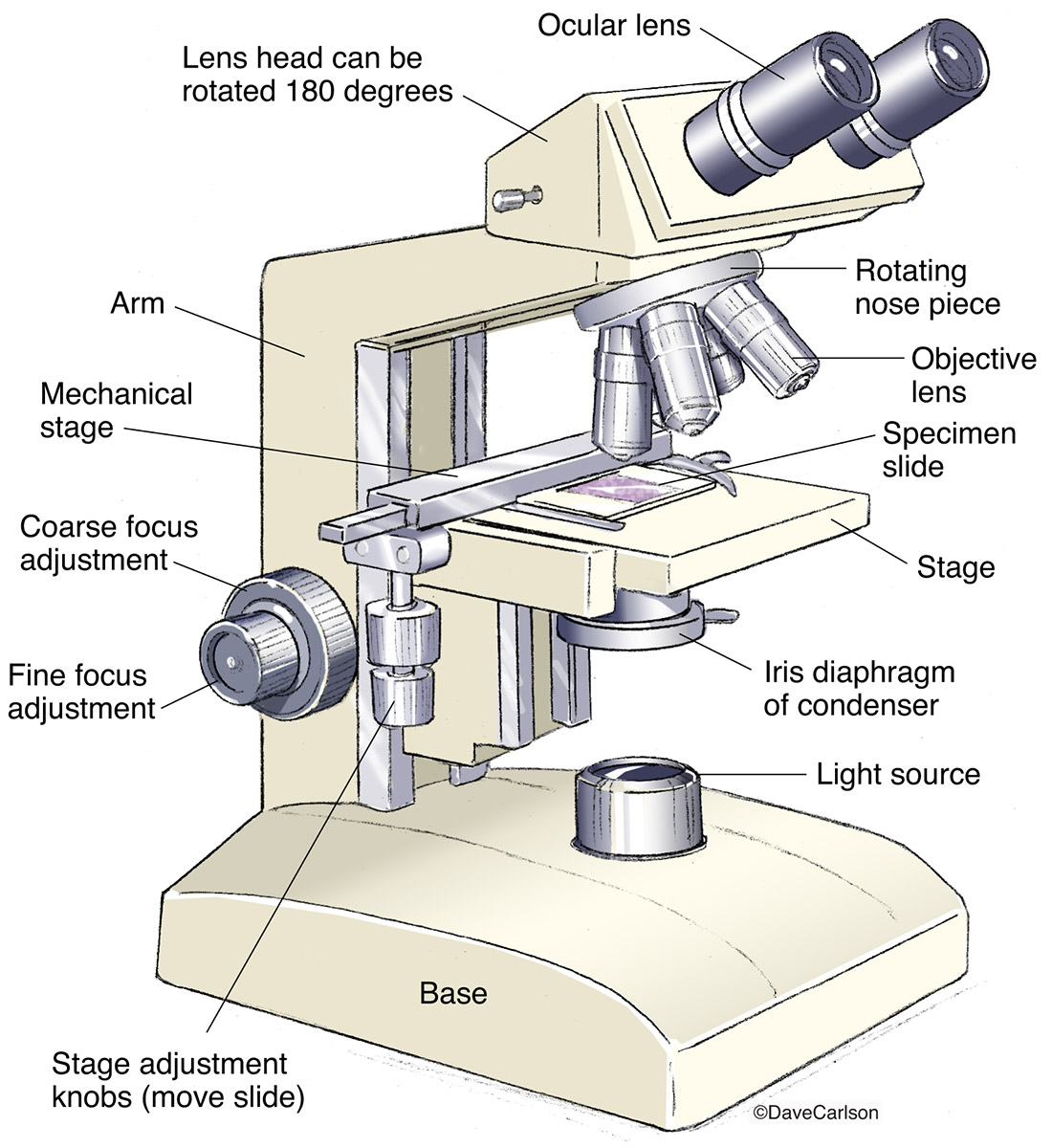
Compound Microscope Carlson Stock Art
This activity has been designed for use in homes and schools. Each microscope layout (both blank and the version with answers) are available as PDF downloads. You can view a more in-depth review of each part of the microscope here. Download the Label the Parts of the Microscope PDF printable version here.
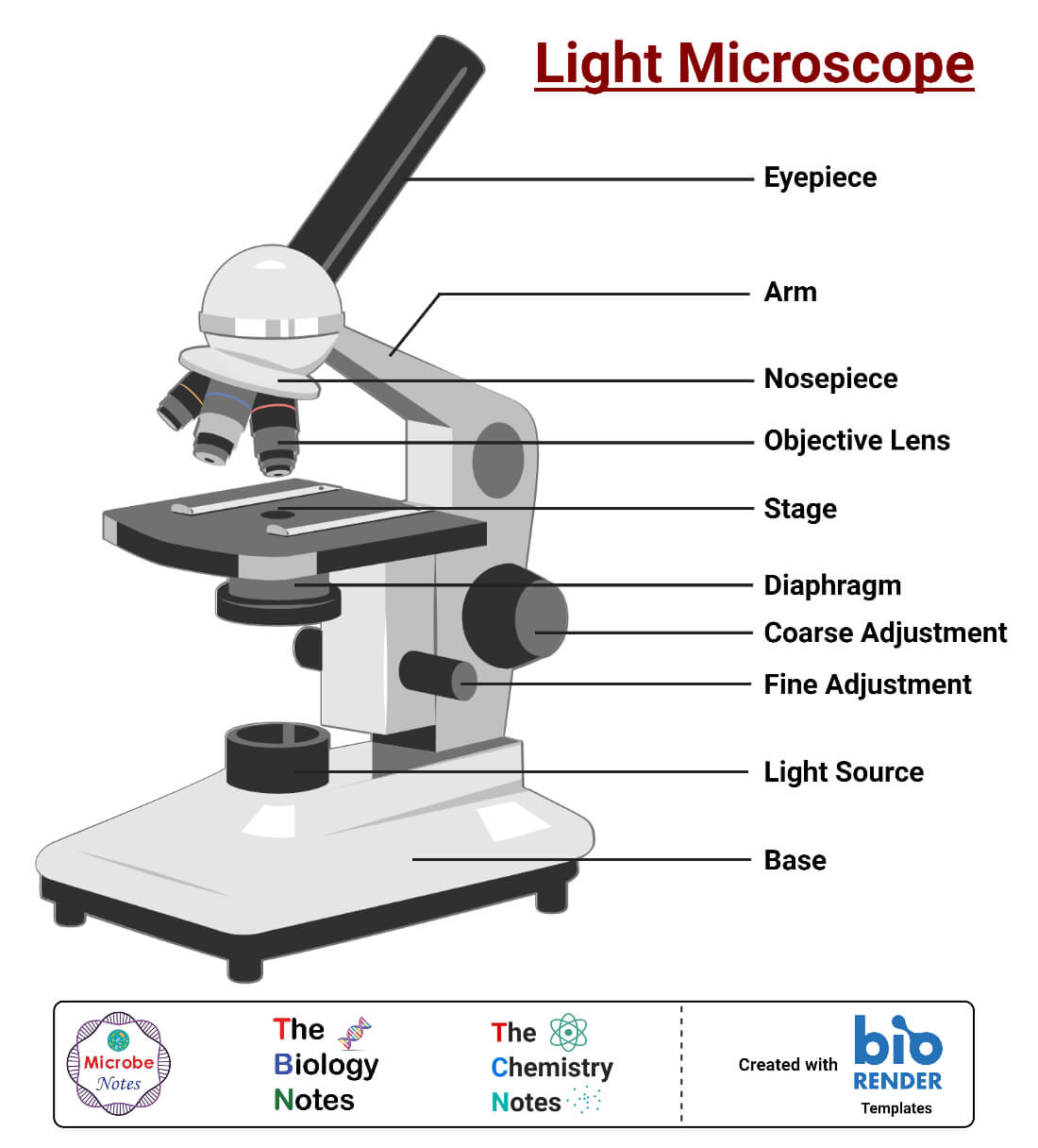
5 Types of Microscopes with Definitions, Principle, Uses, Labeled Diagrams
Phase-contrast microscope labeled diagram. Phase-contrast microscope functions: Its applications areas include. In cases where the specimen is colorless and is very tiny; In biology to conduct cellular level examination of microorganisms that can't be visualized using the bright field microscopy; Interference Microscope
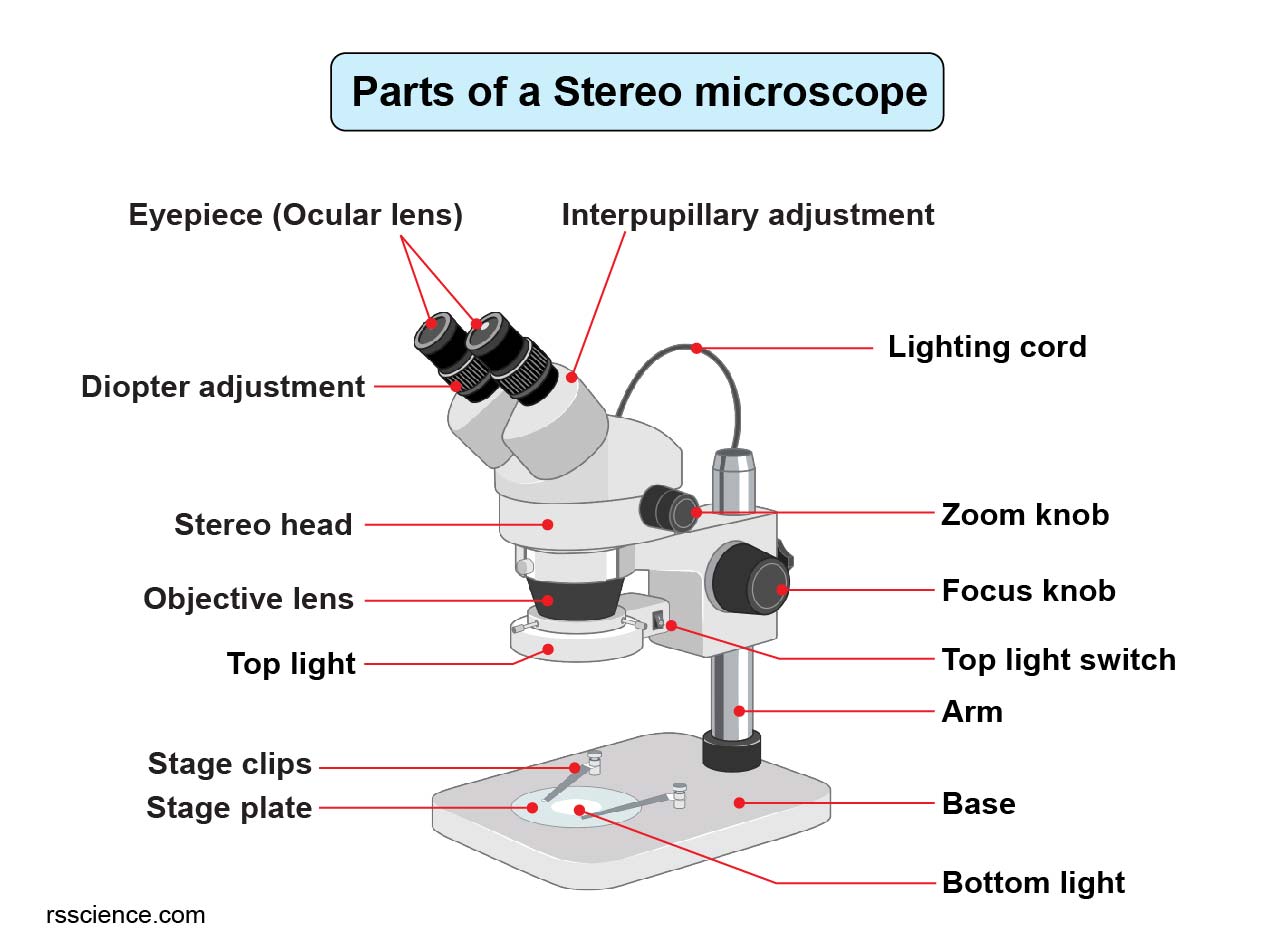
Parts of Stereo Microscope (Dissecting microscope) labeled diagram
Figure: Labeled Diagram of a Light Microscope. Types of light microscopes (optical microscope) With the evolved field of Microbiology, the microscopes. used to view specimens are both simple and compound light microscopes, all using lenses. The difference is simple light microscopes use a single lens for magnification while compound lenses use.
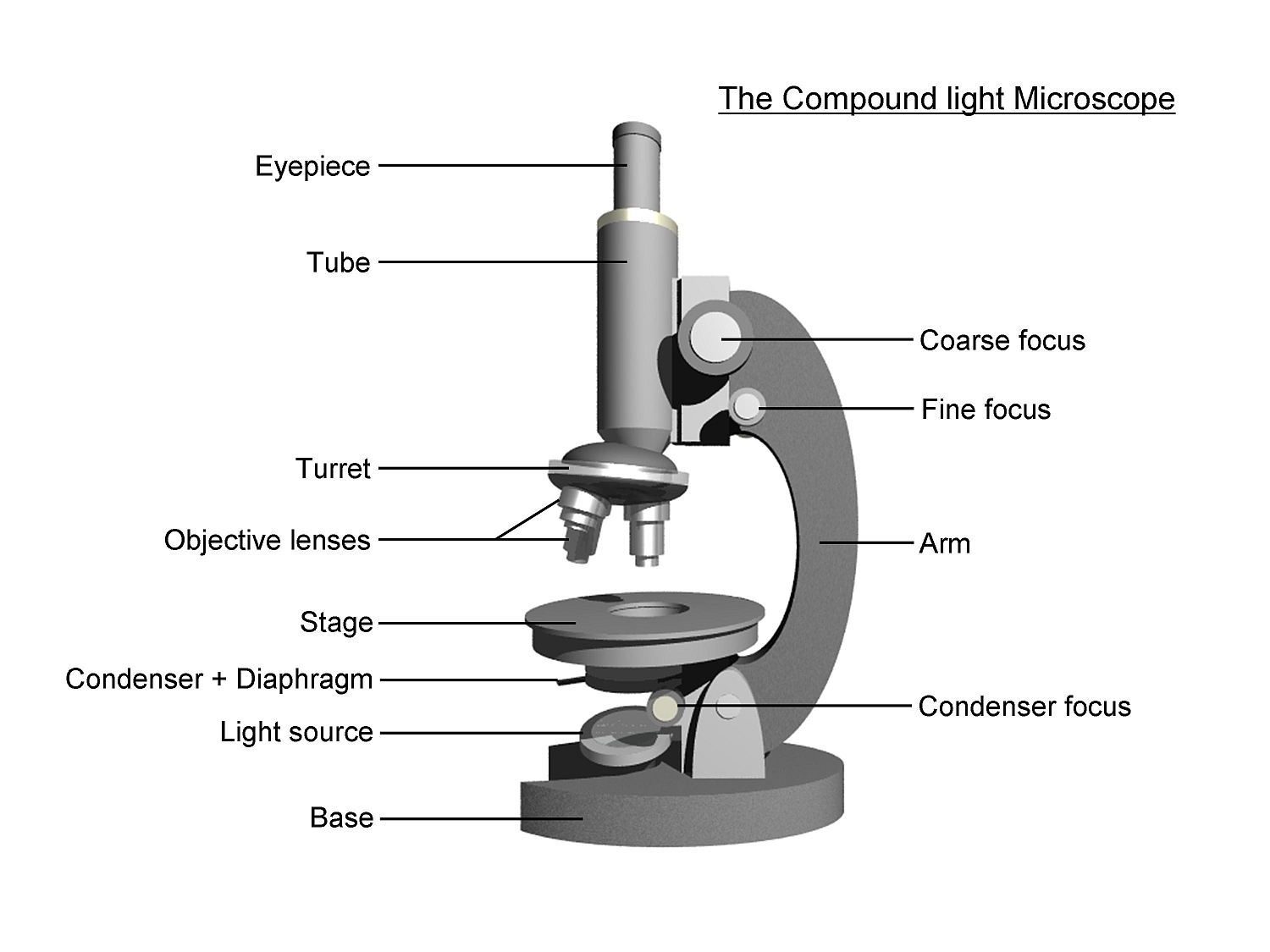
Cells and Microscopes
Figure: Diagram of parts of a microscope. There are three structural parts of the microscope i.e. head, arm, and base. Head - The head is a cylindrical metallic tube that holds the eyepiece lens at one end and connects to the nose piece at other end. It is also called a body tube or eyepiece tube.
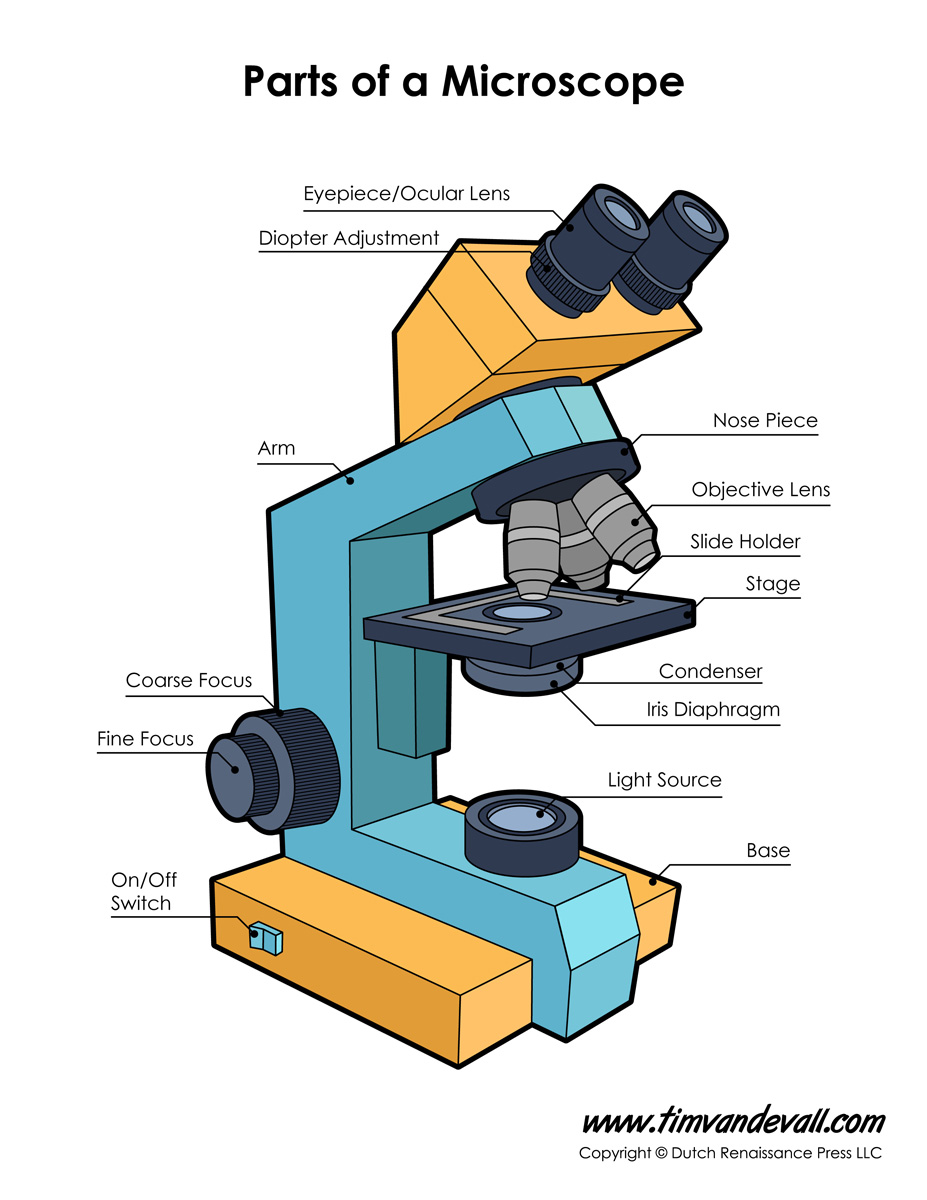
Monday September 25 Parts of a Compound Light Microscope
The working principle of a simple microscope is that when a lens is held close to the eye, a virtual, magnified and erect image of a specimen is formed at the least possible distance from which a human eye can discern objects clearly. Magnification formula The magnification power of a simple microscope is expressed as: M = 1 + D/F Where

Parts of a Microscope The Comprehensive Guide Microscope and
Course: Biology library > Unit 8 Science > Biology library > Structure of a cell > Introduction to cells Privacy Policy Cookie Notice Microscopy Introduction to microscopes and how they work. Covers brightfield microscopy, fluorescence microscopy, and electron microscopy. Introduction

Microscope diagram Tom Butler Technical Drawing and Illustration
With Labeled Diagram and Functions How does a Compound Microscope Work? Before exploring microscope parts and functions, you should probably understand that the compound light microscope is more complicated than just a microscope with more than one lens.
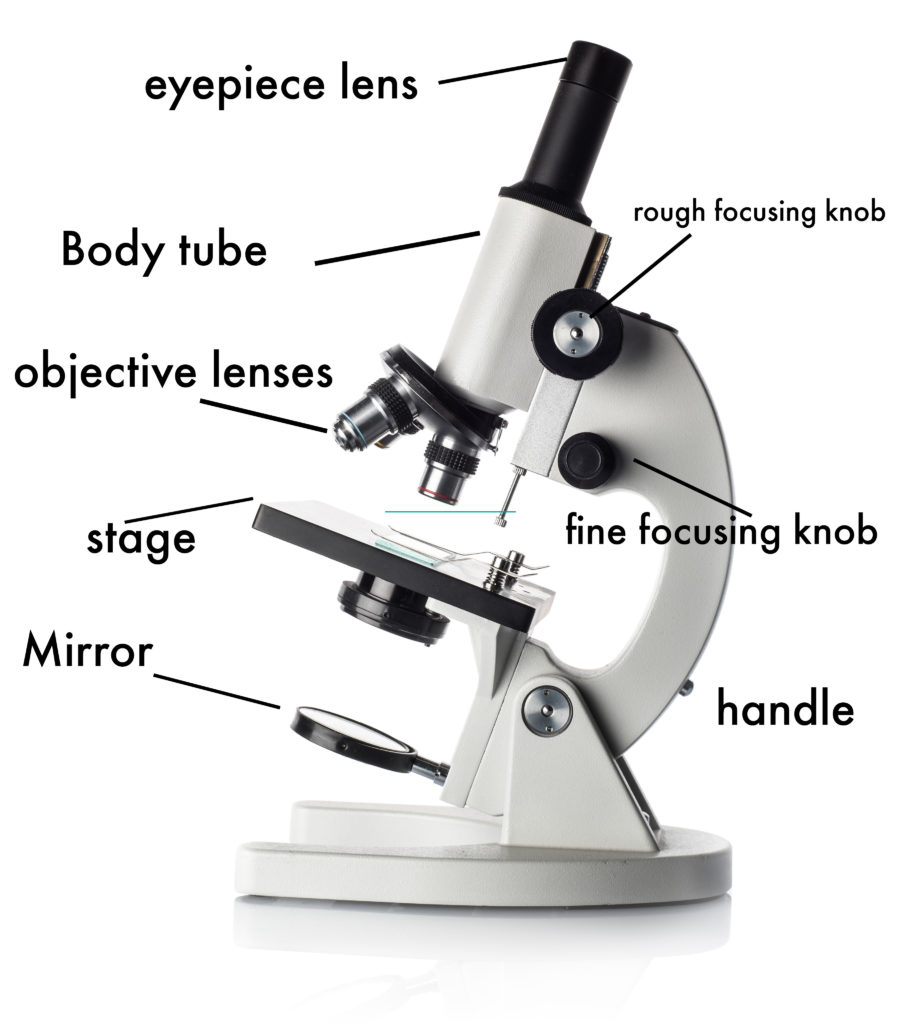
How to Use a Microscope
A labeled diagram of microscope parts furnishes comprehensive information regarding their composition and spatial arrangement within the microscope, enabling researchers to comprehend their function effectively. In this comprehensive article, we will delve into the intricate parts of the microscope, exploring their functions in detail.
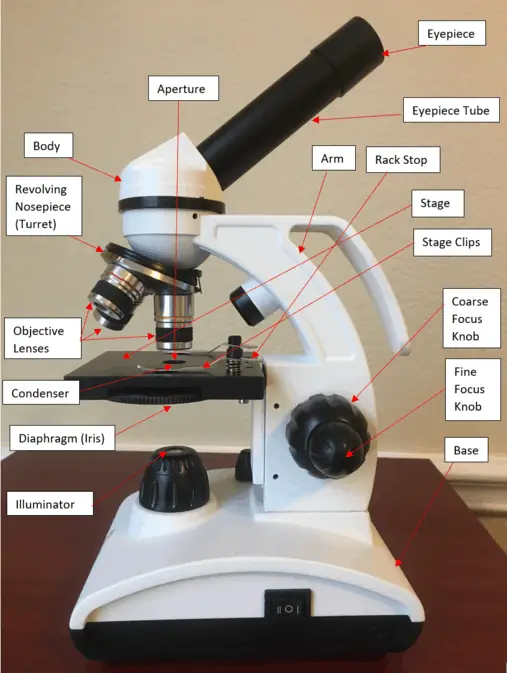
16 Parts of a Compound Microscope Diagrams and Video Microscope Clarity
Fluorescence microscopes: These use fluorescent dyes to highlight specific structures or molecules in a sample and are commonly used in biological research. X-ray microscopes: These use X-rays to produce images of the internal structure of samples and are often used to study materials and biological specimens.
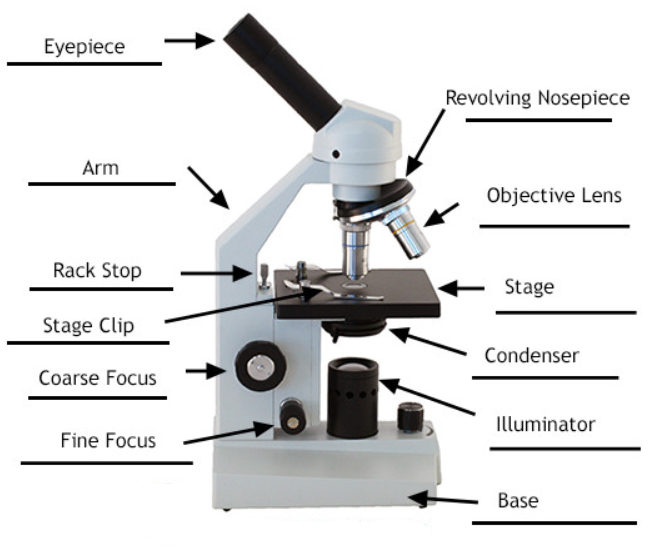
Parts of a Compound Microscope Labeled (with diagrams) Medical
The web page titled "Parts of a Microscope with Labeled Diagram and Functions" has the following key takeaways: 🔍 The microscope is an essential tool for scientists, researchers, and medical professionals. 🧬 The main function of a microscope is to provide a magnified view of small objects or organisms, such as bacteria, cells, or tissues.
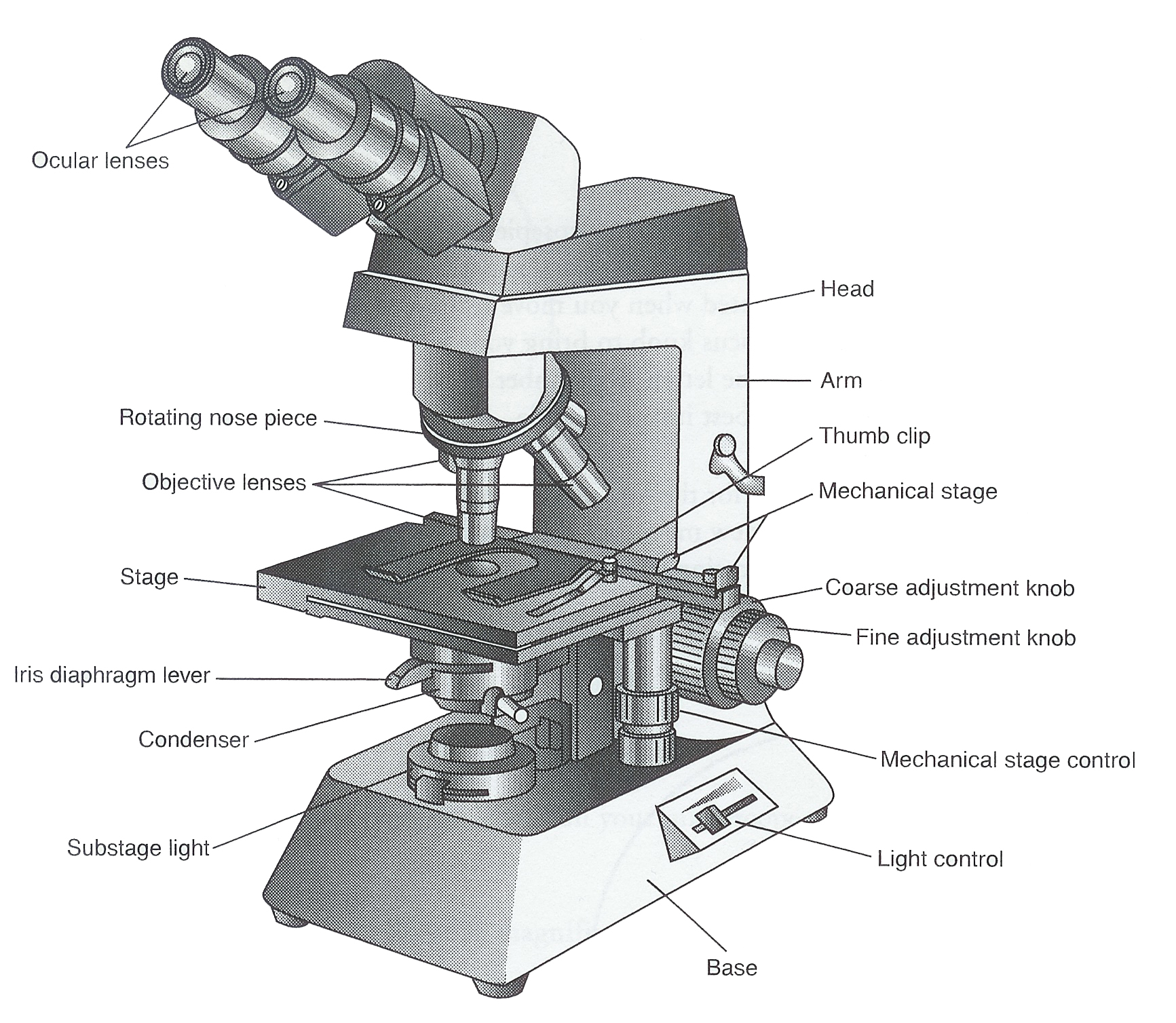
Ag Biology Unit 2
Parts of the Microscope (Labeled Diagrams) By Editorial Board December 14, 2022 The microscope is one of the must-have laboratory tools because of its ability to observe minute objects, usually living organisms that cannot be seen by the naked eyes. It is categorized into two: simple and compound microscopes.
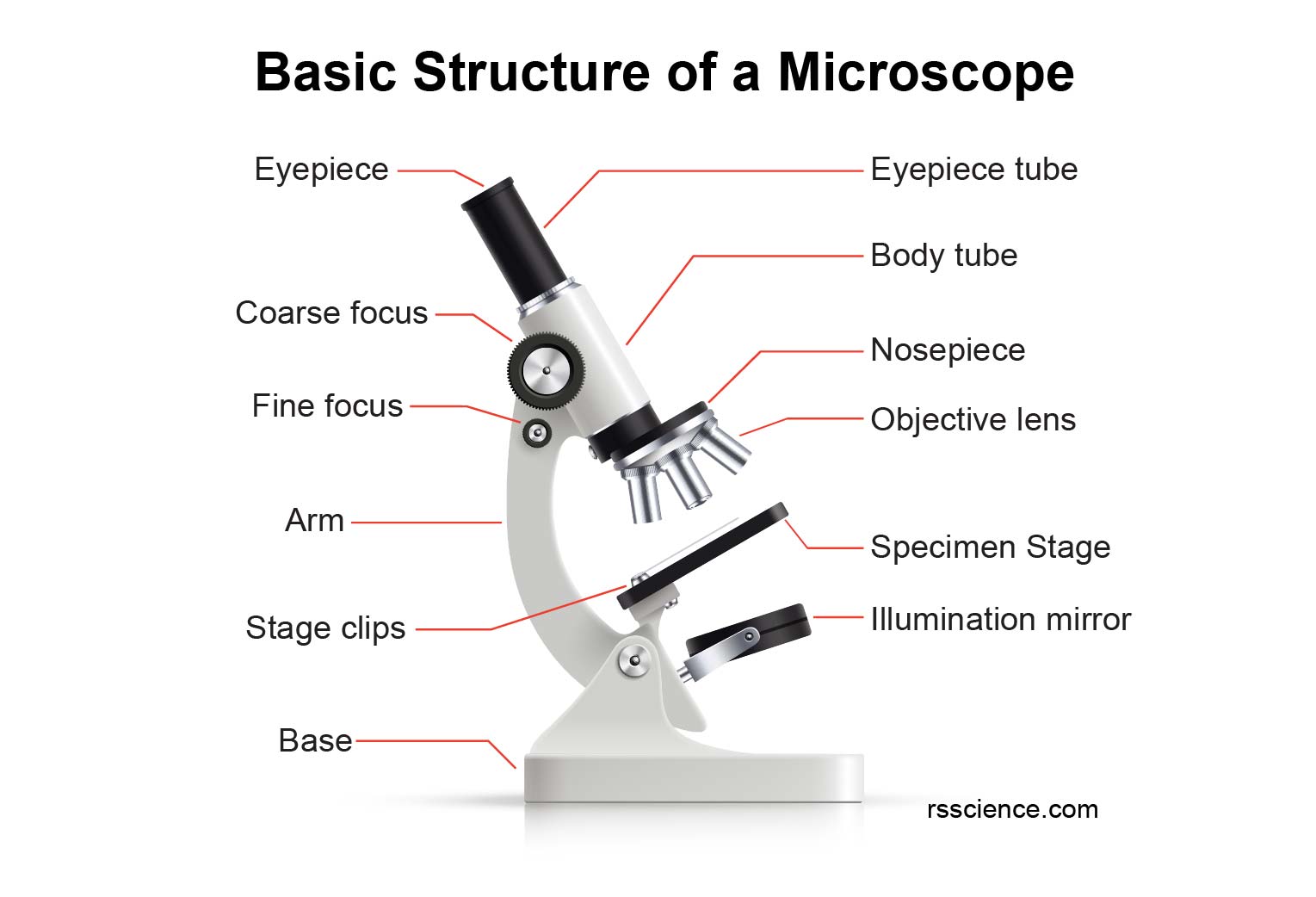
What is a Microscope? Function and Magnification Rs' Science
Labomed 9135010 CxL Binocular Cordless Microscope, 4x, 10x, 40x Objectives, LED Illumination. $741.00. ACCU-SCOPE EXM-150-MS Monocular Cordless Microscope with Mechanical Stage, Rechargeable. $351.90. Get relevant offers, the latest promotions, and articles from New York Microscope Company. Parts of a Compound Microscope Each part of the .
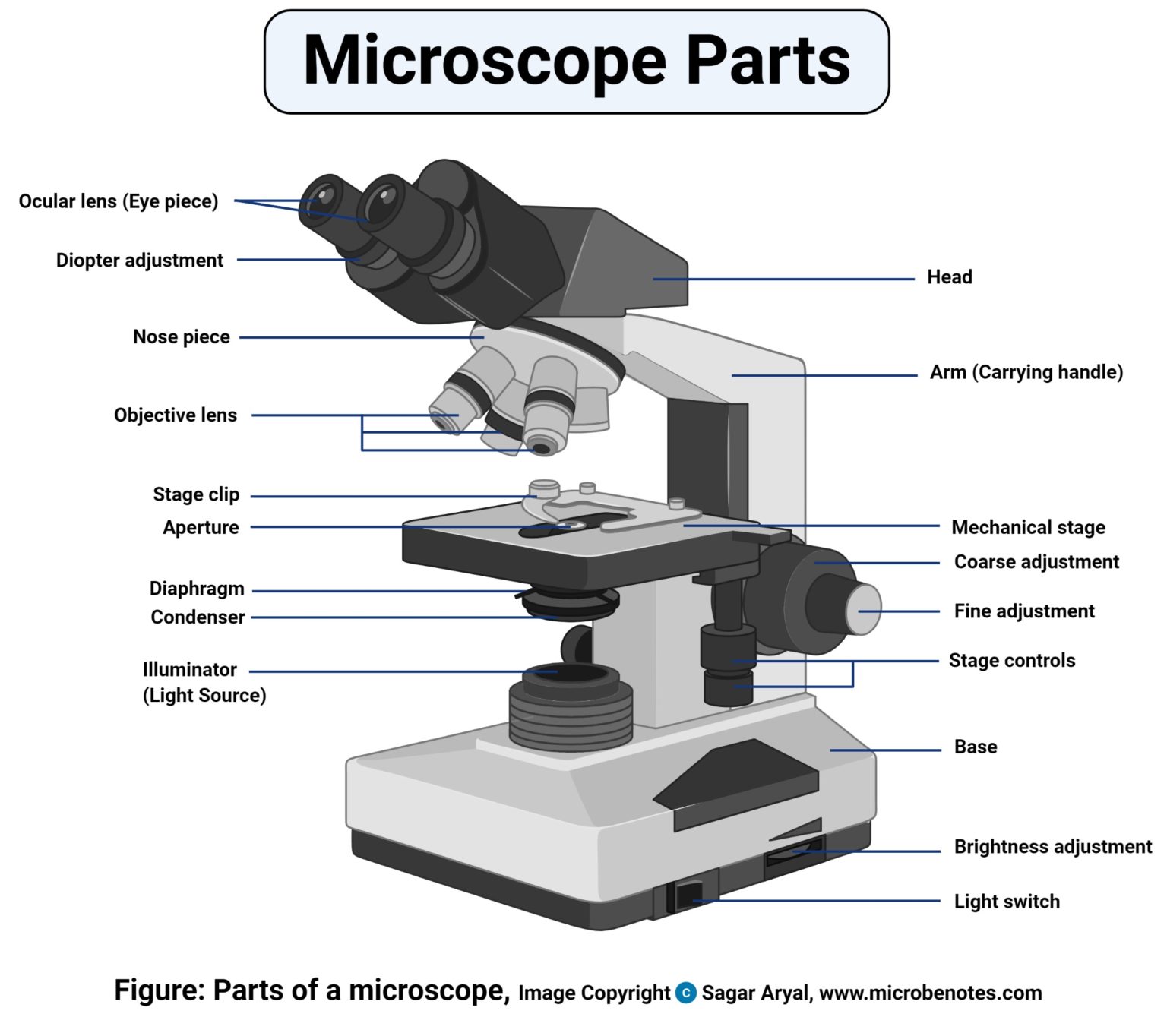
Parts of a microscope with functions and labeled diagram
Ocular Lens (eye-piece) Ocular lens of a microscope. It is located at the top of the microscope, and the ocular lens or eyepiece lens is used to look through the specimen. It also magnifies the image formed by the objective lens, usually ten times (10x) or 15 times (15x). Usually, a microscope has an eyepiece of 10x magnification power.
1.5 Microscopy Biology LibreTexts
A microscope is an optical instrument used to magnify an image of a tiny object;. Diagram. Also see : Labeling the parts of the Microscope. Image source: slidesharecdn.com. Simple microscope Parts and Functions. A simple microscope's parts have two classifications: the mechanical part and the optical parts.
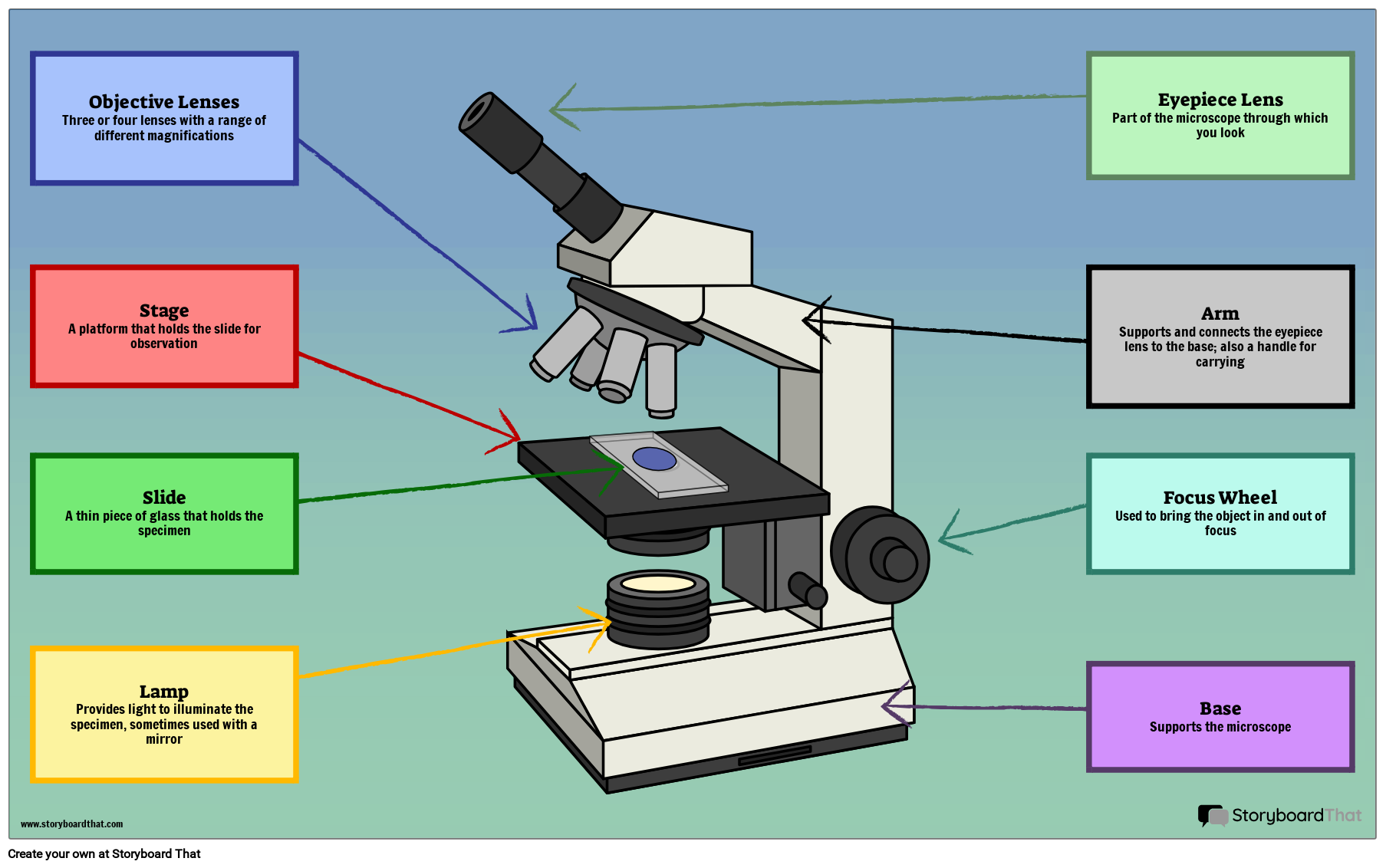
Parts of a Microscope Labeling Activity
This article covers An overview of microscopes What is a "compound microscope"? Labeled diagram of a compound microscope Major structural parts of a compound microscope Optical components of a compound microscope Eyepiece Eyepiece tube Objective lenses Nosepiece Specimen stage Coarse and fine focus knobs Rack stop Illuminator Condenser